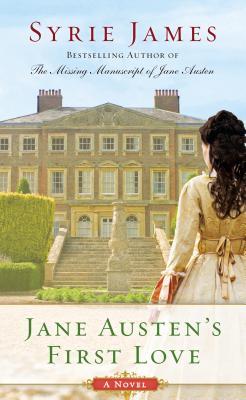Opening with a letter from Cassandra triggering memories for an older Austen, the novel travels back in time to tell the story of the young man who might very well have been Austen's first love. When the Austen family hears of son Edward's betrothal to a young woman of good family and large fortune, they are pleased and excited for him. Even more exciting is that they have been invited out to meet the young lady in question and participate in all the celebrations surrounding the formal engagement announcement. So it happens that Mrs. Austen, Cassandra, 15 year old Jane and younger brother Charles undertake the arduous journey to Kent to see their son and brother. They spend some time in the grand Godmersham Manor that Edward will one day inherit before heading to Goodnestone Park, the home of Edward's beloved. On their way to this second destination, there is a carriage accident and the Austen girls must be rescued by the handsome and worldly Edward Taylor of Bifrons. Jane is immediately drawn to the daring and engaging young man and she is pleased to know that he will be present at most of the merry making leading up to Edward and Elizabeth's betrothal announcement.
The Jane of the novel is still a young woman, not yet out in society but desperately wishing to be so. She is already on her way to becoming an astute observer but being so young and inexperienced, she is also prone to mistaken impressions and to impetuosity. She is fascinated by Edward Taylor, the tales of his peripatetic childhood in Europe, his self-confidence, and his dashing devil may care attitude. He, in turn, is captivated by her sharp intellect and forthrightness. But like in Austen's own novels, simple attraction is never quite so simple. There is another lady, with perhaps the better claim, who also fancies Edward. And there are several other pairings that engage young Jane's interest as well. When many of the planned festivities must be cancelled for extenuating circumstances, Jane suggests that the company put on Shakespeare's A Midsummer Night's Dream with the goal of correcting what she sees as these unlikely and unfortunate pairings as well as to give her more time to spend with Edward.
As is evident by Jane's own Emma-like match-making, James infuses many of the characters here with echoes of Austen's own major and minor characters. They do not correspond exactly but show flashes of the people Austen would one day write. The story itself is inspired by an actual line in a letter between Jane and Cassandra and Edward Taylor was in fact a real person. James' speculation about the relationship and the possibility that this trip to her brother's engagement was the first blossoming of love for Austen is beautifully done. The story is delightful and historically accurate. She captures the insecurities of a young woman on the verge as well as the events that shaped her into the keen social observer that she grew to be. Although the reader might wish for Jane and Edward to have a different ending, James must stay true to the facts of Austen's life and she manages to do so without allowing for any hint of the maudlin, infusing the older Jane's memories to come to an end with only a slight air of resigned melancholy. Fans of all things Austen will indeed get great pleasure out of this novel, both for its originality and for its hints of the masterful works Austen will, in fact, one day pen for us all to enjoy.
For more information about Syrie James and the book, check out her website, Facebook page, Twitter feed or check out her GoodReads author page. Take a look at the amazon reviews for others' thoughts and opinions on the book.
Thanks to Nita at Penguin for sending me a copy of the book to review.




No comments:
Post a Comment
I have had to disable the anonymous comment option to cut down on the spam and I apologize to those of you for whom this makes commenting a chore. I hope you'll still opt to leave me your thoughts. I love to hear what you think, especially so I know I'm not just whistling into the wind here at my computer.